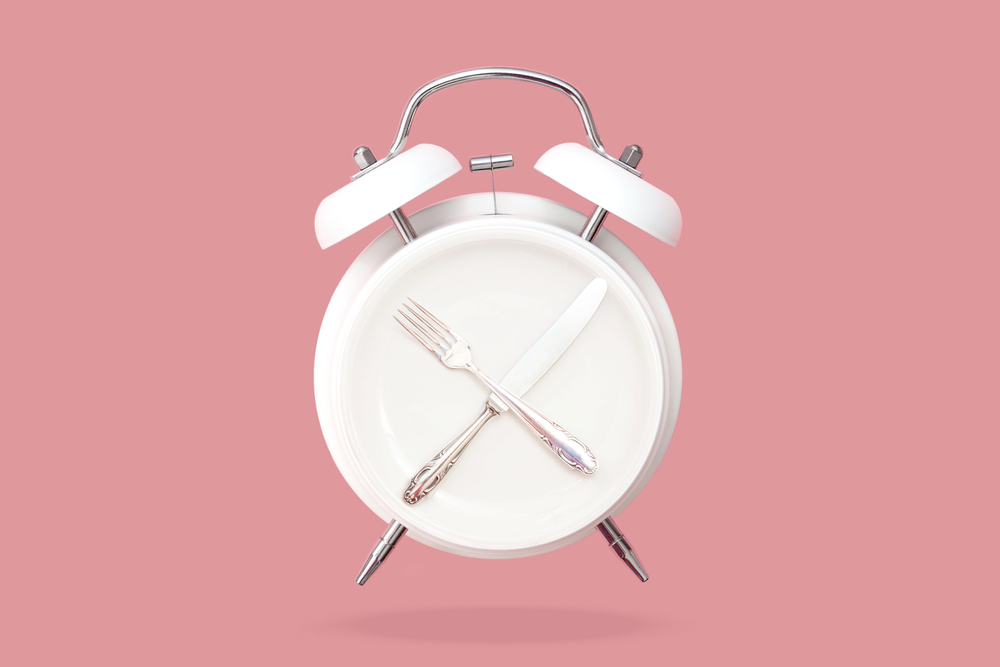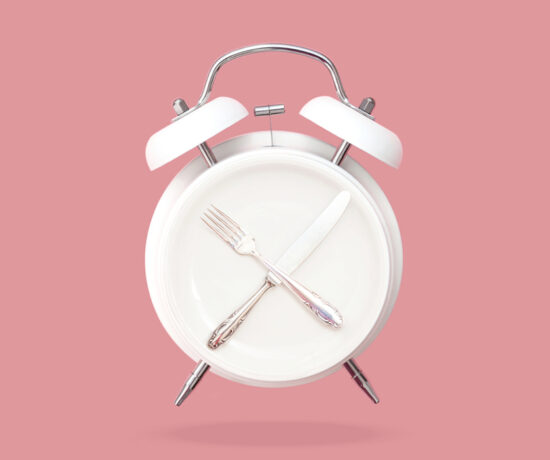Would you like to know how to optimise your current health status quick smart, prevent serious disease in future and turn back your body clock big time? One of our team members, Anja Kussler, participated in our new SwitchFast program late last year – to get an idea of what to expect, read her raw and honest account of her first-time extended fasting experience below, complete with the highs, lows and an epic sense of awakening in body, mind and soul!

THE BUILD-UP
I decided to participate in Deb’s new Switch Fast program, which kicked off in October last year, for a number of reasons. Whilst not deemed a weight loss programme as such, one of my main drivers was certainly to reset myself in that department and also getting back on track keto and health wise.
The past couple of years living in these crazy times had come with a set of major changes and related stresses, such as leaving the big smoke and setting up off-grid life in a rural/coastal community from scratch.
I’d also been living alongside a truly loving but highly carb-focused partner, so trying to maintain a keto lifestyle whilst transitioning into vegetarianism (which eventually led us to settle for pescatarianism!) came with its challenges too. On top of that, I’ve been in the throes of peri-/menopause for quite some time with my hormones going haywire and often leaving me moody, anxious, fatigued and mentally drained.
As a result of the above, I sidelined into naughty not-so-healthy comfort foods along the way, leaving me with unwanted extra bits in the most undesired places. After a lifetime of being blessed with great skin and tone, loose, saggy bits were appearing out of nowhere, most notable my thighs and face. To say I was not feeling happy or comfortable in my own skin pretty much summed up my general state of being.
Doing a 5-day fast, I felt, would be a great opportunity to get on top of this seemingly vicious cycle. And, doing it together with my partner, Muzza, it would not only keep us both and each other accountable, but it also offer us a chance to give our lives a much needed overhaul in terms of nipping bad lifestyle habits in the bud, as well as preventing future health issues and turning back our body clocks by going into autophagy.
As I learned when doing my SwitchFast homework, autophagy is one of the main benefits of a prolonged fast. This is when, after 24 hours of not having solid meals, the body begins to recycle toxic and unwanted waste and proteins and sends it to any parts and organs of the body that need healing and repair.
Admittedly, we both went into this fast with a sense of trepidation. Our biggest concern was not being able to succeed and feeling hungry all the time due to the lack of food and being able to indulge in the pleasure of ‘chewing’. I was also a tad worried about doing a fast after years of struggling with adrenal fatigue, which is one of the reasons listed for not doing an extended fast.
Well, I decided to ‘feel the fear and do it anyway’, which happened to become one of the best things I ever did for me, for us, for our health and our relationship, in body, mind and sprit combined.
Please note: SwitchFast is conducted as a 10-day guided program, with a general introduction and a couple of prep and broth days to ease you into a water/herbal tea-only fast of either 3 or 5 days, followed by a few wind-down days, where we regular meals are gently reintroduced and maintenance suggestions provided. To fully reap the benefits of an extended fast, it is important to be in nutritional ketosis before you start, so a program like TKS, along with Intermittent Fasting (which already induces a mild ongoing state of autophagy), is a good way to set you up for the ride!

FAST DAY 1
To set the scene for our fast, I start the day with a cup of Green tea in my favourite cup, and sip a litre of spring water straight off the bat to begin eliminating some toxins. At 10.30am we have our first recommended daily cup of spicy home-made vegetable broth with coconut oil and a pinch of Himalayan salt. It’s so tasty! The purpose of this ‘fat bomb’ is to optimise our nutrition levels as we ease into the fast for a couple of days, before the body starts tapping into its own fat storage for the following 3 water and herbal tea-only days. Both Muzza and I, having practised Intermittent Fasting on most days anyway, feel pretty energetic and clear-headed, and we have our second cup of broth by 2pm. Surprisingly, neither of us feel hungry at all, probably due to the hunger hormone Ghrelin shutting down, which happens during extended fasting.
In a quest not to think about food (or the ritual of preparing it), I keep myself busy with outdoorsy tasks by mowing the lawns and doing some gardening. I do find I need to take breaks more often than usual, but decide to just go with the flow…
During the course of the day I keep sipping lots of water, peppermint and detox teas, as well as my favourite healthy beverage of all times: fresh Italian parsley steeped in boiling water. At 4pm I hit a wall and feel the need to lie down for a bit. It’s like my head is ‘busy’ and ‘wants to do stuff’ but my body says: “Nope, just lie down and chill.”
So retreat to my bed and busy myself with some light online tasks; nothing too mentally taxing, just cleaning out my computer and doing the things that have been on the agenda for months and get routinely procrastinated on. So in a way, I’m finally getting ‘shit done’.
All through the day I’m peeing like a queen – apologies if that’s ‘too much information’, but it’s a very real part of the process! I am also experiencing quite a bit of water retention. I’m not too fussed by this as from experience, from when I first started on the TKS program back in 2017, it’s all about toxins rising to the surface and ‘wanting out!’
I’m also starting to feel quite sore physically, especially in the neck and shoulders. This could be, in part, from mowing our large, undulating lawn and lugging the mower uphill – or perhaps emotional issues that are stuck in my body manifesting themselves in the form of inflammation? The latter, as we learn from one of Deb’s daily SF support broadcasts, is quite a common byproduct of prolonged fasting. (I’ll elaborate on this in my Day 3 report!)
I decide to do a gentle but long yin yoga session is in order to help with the aches and pains (and as a measure to occupy myself before, during and after the usual 5pm hour when ‘wine-o’ clock hour’ beckons). I also indulge in a beach walk with my pups, to increase the feel-good factor and practise consciously inhaling that fresh healing salt air (4 breaths in, 6 out). It’s amazing what you focus on when your mind is not occupied by preparing the next meal!

DAY 2
I wake up feeling a bit rough around the edges, not headachy, but quite ‘fuzzy’. This dissipates quickly and makes way for a clear head, with a brief moment of grumpiness in the afternoon. Our broth time is now the highlight of our day – a sentiment shared by some of the other ladies in the TKS Team also doing the fast.
Muzza’s comment at end of this day: “Fasting gives you a good brain”, as we both experience ‘extreme’ mental clarity and keep bouncing ideas off one another. I, having been in a ketogenic state from the start, continue to have regular bowel movements, but Muzza feels a bit constipated so I summons him to have some psyllium husk with water. He finds it quite disgusting at first, but actually enjoys it when he has another batch with a little bit of salt added. His comment:“Anything tastes good once you’ve had Chartreuse.”
DAY 3
I’m feeling slightly shaky and anxious on waking. I’m 1.3 kgs down though, with a significant reduction in my tummy and thigh area – happy girl! We’re wondering what it will be like having to do without the broth fat bomb today but find it’s not an issue, as we still don’t feel hungry. It just gets a bit boring as we both love our food ritual. To mitigate this, we try Deb’s idea of ramping up our salt intake by licking it off our hand, followed by a swig of water. How good is that? I guess our taste buds are super ‘switched on’ when you don’t have much to compare it to!
Our energy today comes and goes in waves, and we both feel a surge in energy during the morning and are getting lots done, both physically and mentally, before flatlining in the afternoon. It’s weird experiencing a combination of physical fatigue and a mental boost at the same time. Both Muzza and I have started to think about ‘constructive hunger’ and accepting this into our lives. We’ve also gotten into the habit of high-fiving each other at the end of each day to celebrate our fasting achievement.
Today is a bit of light bulb moment for us. In Deb’s supportive daily Live she shares how fasting is an opportunity to break through our automatic responses to food as it makes us aware that the moment we feel uncomfortable about something, our usual tendency is to turn to food, alcohol (or drugs for some!) to self-soothe and deal with pain by avoiding confronting that discomfort and relating emotion.
Experiencing discomfort on a physical level works on the same premises.Today, for example, I have a nagging pain in my neck, trapezius and upper arm/shoulder area. According to Deb’, this is a sign that I’m putting all my emotion into that area as a result of past trauma. And because pain manifests the release of trauma during fasting, she advises not to suppress these emotions but instead “not fear the discomfort, sit with it and let that energy flow through you. Remind yourself that life is not happy all the time and trust that we are spiritual beings just are having a physical experience.” So in that sense, releasing this pain by ‘going with through it’ is a spiritual release.
Another ‘emotional fasting’ aspect is the call to not associate ‘not eating’ with negative emotions, but instead use the absence of food as a chance to truly reflect, identify our eating triggers and rewire our brain. So we really start to become aware and think about what normally leads us to bad eating behaviours. Is it frustration, boredom, a stressful current situation or a negative memory of deep-seated trauma? And what can we do to rewards ourselves in a healthier manner?
Speaking of awareness, as we’re having a cup of chamomile tea with Stevia on this afternoon, Muzza comments: “It feels like heaven”. The thing is when fasting, is that the little things, when seen with new eyes, become sources of great appreciation, and a new avenue for experiencing gratitude.

DAY 4
Muzz and I awake bright and early (before sunrise) after a solid and restful night’s sleep, with a mind buzzing full of creative ideas. This is not really surprising, since our bodies haven’t been busy digesting food all night and can direct that energy towards improved brain function instead! I also notice that my water retention has gone and that I don’t pee like a Queen any longer as my body has become accustomed to utilising the liquids rather than merely expelling them.
I’m off for a grocery shop in the city today, to stock up for the next few days’ post-fast meals. I feel great and highly energised – until just after 1pm, when a 3-hour lull hits. It’s probably not my cleverest move to hit the supermarket as my last stop, with food stuffs beckoning from the shelves. The result: By the time I arrive back home, I have food on my mind and really just feel like chewing something, not just consuming liquid! Thankfully my ‘accountability buddy’ encourages me to persist, stay calm and carry on. So I take his advice, settle for a late afternoon of ‘therapeutic pottering’ and another soothing yoga session, which soon elevates my mood, catapults any Ms Neggy thoughts out of my head and remember Deb’s words: “Sit with the emotion, find a distraction, remember you’re not starving and don’t give in to instant gratification of food because that’s what your mind is programmed to do!”
And how did your day go, I ask Muzz as we head to bed? “I’ve been feeling floaty,” he says. “Like nothing is a problem.” I concur: Day 4 Tick.
DAY 5
Day 5 is a bit like the Day 4, and again I wake up at 4.30 with my mind buzzing and ready to rock ’n roll. I keep myself busy with a long dog walk, a trip to markets and chores; then again hit a wall around lunchtime. My head is still going but my body won’t quite cooperate but instead of getting frustrated about it, I follow my intuition to give it some rest, surrender and just go with the ebb and flow of how I feel at any given moment.

DAY 6 AND BEYOND: THE LOW DOWN
We are beyond excited to indulge in our ‘first supper’ (meal) post fast on Day 6. The key is to reintroduce meals that are easy to digest and avoid potential allergens like dairy, sweet foods and alcohol for a week or two after we’ve cleansed our bodies from all the toxins.
It’s also crucial to consume everything very slowly (a process called mastication) to get our systems used to chewing and processing food again. Plus it’s a wonderful way to fully start eating mindfully again and preparing food with love, joy and gratitude!
Our first post-fast meal is a Greek fish parcel with fresh herbs, spices, vegetables and spinach greens cooked in coconut milk, served on our deck overlooking the ocean with the sun blissfully shining down on us. And so we sit there ‘masticating’, with our eyes closed, chewing and enjoying every delectable morsel to the fullest!
After having gone through all the above ‘(e)motions, both Muzz and I agree that the best thing about the fasting process is the ‘aftermath’. We both keep experiencing an increased sense of vitality, mental alertness and general wellbeing in the days and even weeks post fast. The inflammation and pain have completely disappeared, plus the weight loss continues and I actually have my biggest drop in weight and cms in the 3 days following the fast. I am also truly amazed (and delighted!) by the way my skin has tightened up and feels more youthful as all those loose bits seemed to have disappeared off the face off the earth as a result of autophagy ‘getting rid what no longer serves us’.
Having experienced the benefits of autophagy first hand, we are now more ready than ever to include regular long-term fasts into our lives, first and foremost to maintain good health future proof ourselves against chronic diseases like cancer.
And last but not least: the physical, mental and emotional benefits aside, another huge bonus of doing an extended fast is, without fail, NOT having to do the dishes for five days in a row!
For more details on SwitchFast and to join the next round, starting 14 February, click here.


